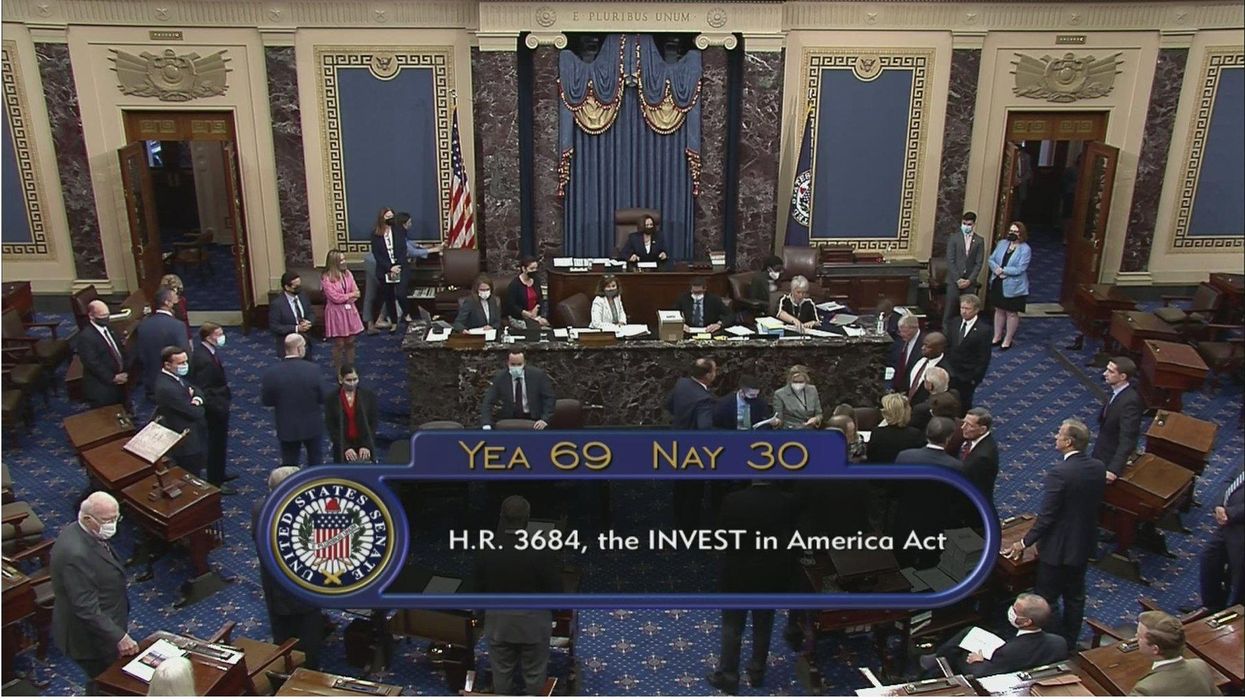Todd Young Becomes Third GOP Senator To Reject Trump In 2024
There are now three Senate Republicans who are declining to endorse former President Donald Trump's candidacy in the 2024 election, and that number may grow larger over the next eight months.
MSNBC columnist Steve Benen wrote that despite Senate Minority Leader Mitch McConnell's (R-KY) endorsement of the 45th president of the United States earlier this week, not all members of his caucus are as eager. On Friday, Sen. Todd Young (R-IN) — who represents a state Trump won by 16 points in 2020 — declined to get behind Trump's 2024 campaign for the White House while speaking with reporters on Capitol Hill.
When asked what his other issues with Trump were, Young said, "Where do I begin?" He elaborated that his chief complaint with Trump was with his indifference toward Russian President Vladimir Putin's conquest of Ukraine.
"I think President Trump's judgment is wrong in this case, Young said. "President Putin and his government have engaged in war crimes."
At one point, CNN's Manu Raju asked Young, "does it worry you that he's your party's leading presidential candidate?"
"Of course it does," Young quipped. "That's why I don't intend to support him for the Republican nomination."
"Who do you plan to support?" A reporter asked.
"I haven't decided yet," the senator responded. "But it won't be him."
While Young noted that his lack of support for Trump is for the Republican presidential primary, the 45th president is the only Republican still in the running for the GOP's nomination after former UN ambassador Nikki Haley exited the race earlier this week. The former South Carolina governor had been Trump's final opponent following the New Hampshire primary, but she suspended her campaign after losing nearly every Super Tuesday contest with the exception of Vermont. Haley did not endorse Trump in her announcement ending her campaign, and said the ex-president would have to "earn" the votes of her supporters.
Todd Young is the third Senate Republican to publicly distance himself from Trump's third bid for the White House. Previously, Sens. Lisa Murkowski (R-AK) and Mitt Romney (R-UT) have said they also would not be supporting the ex-president in 2024. If Trump is convicted of felonies in any of his four upcoming criminal trials this year, it's likely other Republican elected officials may join those three in declining to support Trump.
The former president will face his first trial in Manhattan on March 25, where District Attorney Alvin Bragg has indicted him on 34 felony counts relating to hush money payments he allegedly orchestrated in 2016. His former lawyer and "fixer" Michael Cohen, who was already sentenced to three years in federal prison for facilitating those payments among other crimes, will be Bragg's star witness.
Reprinted with permission from Alternet.



